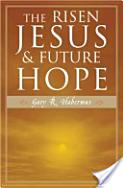Simply stated, Christianity is based on historical events. Christians believe that the basis for their entire worldview appeared in human history some two thousand year ago. The theological reality that "Christ died for our sins" is also a fact of history. David A. Noebel author of Understanding the Times: The Story of the Biblical Christian, Marxist/Leninist, and Secular Humanist Worldviews, writes "Christianity is rooted in history and without its historical roots there would be no Christian worldview."(1) According to Noebel, the Christian view of history can be summarized by the following landmark historical events:
- the revelation of God (primarily His intelligence and power) through the creation of heaven and earth—Genesis 1:1
- the special creation of male and female as body, soul, and spirit (Genesis 1:26-27)
- the rebellion of mankind against his creator (Genesis 3:1-15)
- the revelation of God through the patriarchs (Abraham, Isaac, and Jacob) and Israel (Old Testament, Gospels, and Early Acts)
- the crossing of the Red Sea (Exodus 13)
- the appearance of God in history in the person of Jesus Christ to redeem mankind from sin (John 1:1-2, 14)
- the resurrection of Jesus Christ (I Corinthians 15)
- the revelation of God through His Church, the Body of Christ (Paul's Epistles)
- the judgment of the world (Revelation 19-20)
- the establishment of the new heavens, new earth, and new Jerusalem for the redeemed of all ages (Revelation 21).(2)
A careful reader will note that the events listed above occurred only once, thereby adding further credibility to our previous conclusion that linearism is the primary model for understanding Biblical history.
Noted Christian apologist Josh McDowell offers the following insight regarding the close relationship between Christianity and history. McDowell writes:
There is no doubt that much of the evidence for the validity of the Christian faith is rooted in history. Christianity is a historically founded faith. Its validity, or credibility is based on Jesus Christ literally living in history. The resurrection is rooted in time-space history. Everything that Jesus lived, taught, and died for is dependent upon His literal historical resurrection.(3)
Consequently, Christianity stands or falls based upon the veracity of certain historical facts according to Dr. William Lane Craig.(4) While some might view this assertion as scandalous, Dr. Craig points out that this reality makes Christianity unique amongst the world's religions, because if one can prove the truth of the historical record one would also thereby establish the validity of the Christian faith.(5)
Supporters of Christianity are not the only ones to observe the vital relationship between history and Christianity. Skeptics, atheists, and humanists have sought to undermine the faith by arguing that history is unknowable. Historical relativists claim that there is no such thing as objective history. David A. Noebel highlights the challenge posed by historical relativism when he writes, "to shatter Christian doctrine and the Christian worldview, one need only shatter its historical underpinnings."(6) This is precisely what the historical relativists are attempting to do, according to Dr. Norman Geisler:
Unlike some religions, historical Christianity is inseparably tied to historical events, including the lives of Adam, Abraham, Moses, David, and Jesus. These events, especially those of the life, death, and resurrection of Christ, are crucial to the truth of evangelical Christianity (I Corinthians 15:1-9); without them, it would cease to exist. Thus, the existence and knowability of certain historical events are essential to maintaining biblical Christianity.
The knowability of history is important not only theologically but also apologetically, for the overall argument in defense of Christianity is based on the historicity of the New Testament documents. Hence, since the objective knowability of history is strongly challenged by many contemporary historians, it is necessary to counter this claim in order to secure the defense of Christianity.(7)
Now more than ever, as the attacks increase on the reliability of the New Testament documents, believers need to be ready with answers for historical relativism. Consequently, part two of our study on how believers should view history will be focused on a discussion of the objectivity of history. First we will look at the assertions of the historical relativists, that history is unknowable to understand their position. Second, we will refute historical relativism and demonstrate that objective history is possible. Finally, we will examine the historicity of both the Old and New Testament documents, thereby offering conclusive proof for the veracity of the Christian Worldview. Apologist Dan Story offers the following assessment of the uniqueness of the Christian worldview and its relationship with history in his book, Defending Your Faith: How to Answer the Tough Questions. Story writes, "Christianity is not a mystical religion, such as many Eastern religions and their New Age clones. Neither is it a mythical religion with idols and man-made gods. Nor is Christianity a misinformed religion, such as the various cults. Rather, Christianity is an historic religion, and its truth-claims are grounded on objective, historical facts."(8)
Endnotes:
- David A. Noebel. Understanding the Times: The Story of the Biblical Christian, Marxist/Leninist, and Secular Humanist Worldviews. (Manitou Springs, CO: Summit Press, 1991), 764.
- Adapted from Noebel's list page 764.
- Josh McDowell. The New Evidence the Demands a Verdict. (Nashville, TN: Thomas Nelson, 1999), 673.
- Ibid., 673.
- Ibid., 673.
- Noebel. Understanding the Times, 764-765.
- Norman Geilser. Systematic Theology: Volume One. (Minneapolis, MN: Bethany House, 2002), 181.
- Dan Story. Defending Your Faith: How to Answer the Tough Questions. (Nashville, TN: Thomas Nelson, 1990), 17.


























No comments:
Post a Comment